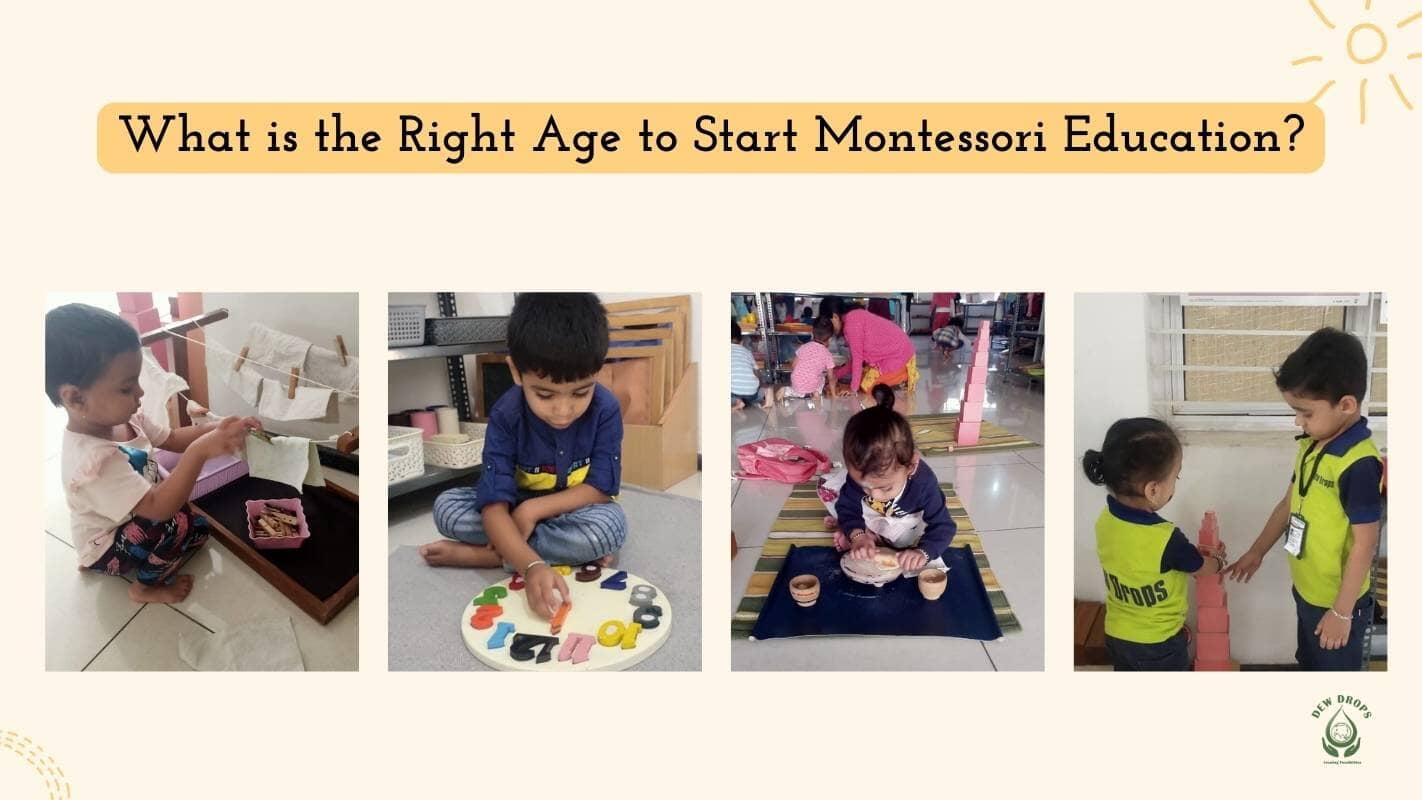What is the right age to start Montessori education?
For parents seeking the best educational path for their children, deciding when to begin Montessori education is a crucial question.
This decision can set the foundation for a child’s lifelong learning journey, impacting everything from their cognitive and emotional development to social skills and independence. Insights from Dr. Maria Montessori, paired with modern neuroscience, provide valuable guidance on the benefits of starting Montessori education early.

Dr. Maria Montessori’s Perspective on Early Learning
Dr. Maria Montessori, a pioneer in early childhood education, emphasized that the first six years of a child’s life are particularly influential. She observed that during these formative years, children have an innate drive to learn and absorb information from their surroundings in a way that’s unparalleled at any other stage. Known as the “absorbent mind,” this period is when children are exceptionally receptive to their environment, experiences, and interactions. Montessori believed that introducing structured, child-centered learning during these years helps unlock each child’s potential, laying the foundation for intellectual, social, and emotional growth.
The Science Behind Early Montessori Education
Modern research in child development and neuroscience affirms Montessori’s insights. Studies show that a child’s brain undergoes rapid development from birth to age six, with critical growth in language, sensory perception, motor skills, and emotional regulation. During these years, the brain is exceptionally plastic, meaning it forms connections rapidly, allowing children to learn and adapt quickly. Neuroscience has also identified “sensitive periods”—developmental windows when children are especially responsive to learning specific skills, such as language and motor coordination. Montessori education is uniquely aligned with these sensitive periods, using targeted materials and activities that meet children at each developmental stage.
Sensitive Periods in Montessori Education
- Language Development: Between birth and age six, children are highly attuned to sounds, language structure, and vocabulary. Montessori environments include rich language exposure, allowing children to develop verbal skills naturally.
- Sensorial and Motor Skills: Young children learn through hands-on exploration. Montessori materials are designed to refine sensory awareness and coordination, supporting both physical and cognitive development.
- Social and Emotional Growth: Montessori classrooms encourage interaction, cooperation, and empathy through shared activities and respect for each child’s individual work. These experiences are invaluable for social development and emotional intelligence.
Why Start Early?
- Supports Holistic Development: By nurturing cognitive, physical, social, and emotional growth, Montessori education provides a well-rounded foundation.
- Fosters Lifelong Learning Skills: Children develop curiosity and resilience through engaging, hands-on activities.
- Prepares Children for Academic Success: Studies have shown that early Montessori learners often excel in problem-solving, critical thinking, and adaptability—skills that are essential in today’s world.
Discover Dew Drops Montessori School’s Early Childhood Programs
At Dew Drops Montessori School, we uphold Dr. Maria Montessori’s philosophy, creating a prepared environment where children can thrive and learn at their own pace.
We are proud to offer admissions for children as early as 18 months (1.5 years), ensuring that even the youngest learners have the opportunity to grow and explore in a nurturing setting.
Our programs are tailored to each child’s unique developmental needs, fostering curiosity, confidence, and a love for learning. We invite you to learn more about our Primary Montessori programs and how they can contribute to your child’s lifelong success.
Contact us today to explore how Montessori education can make a positive difference in your child’s early years.
